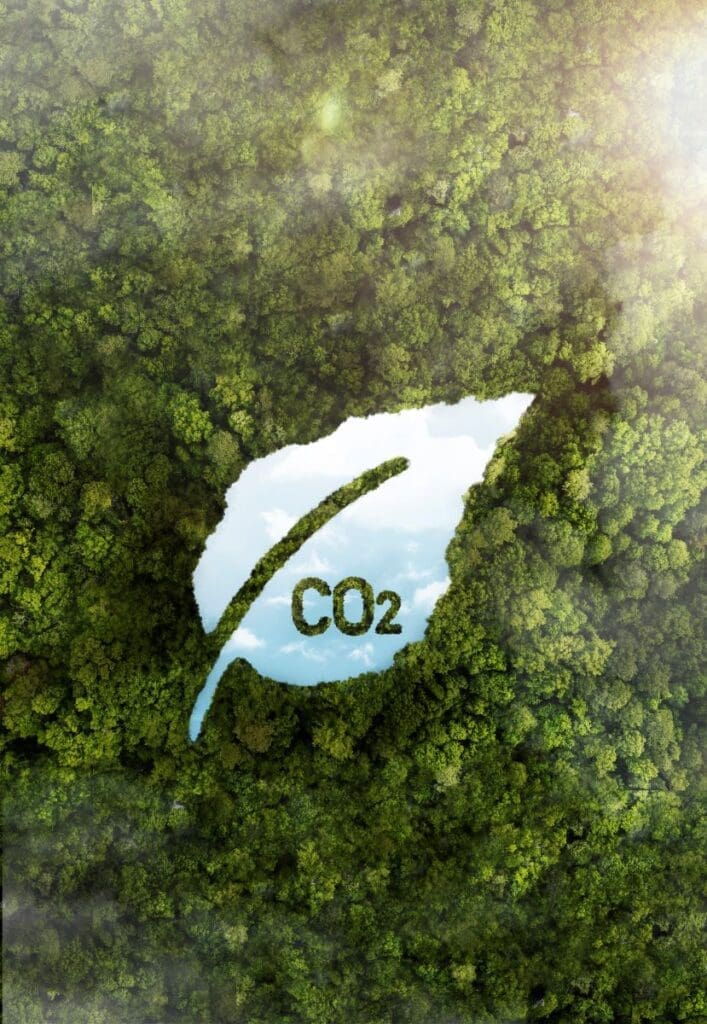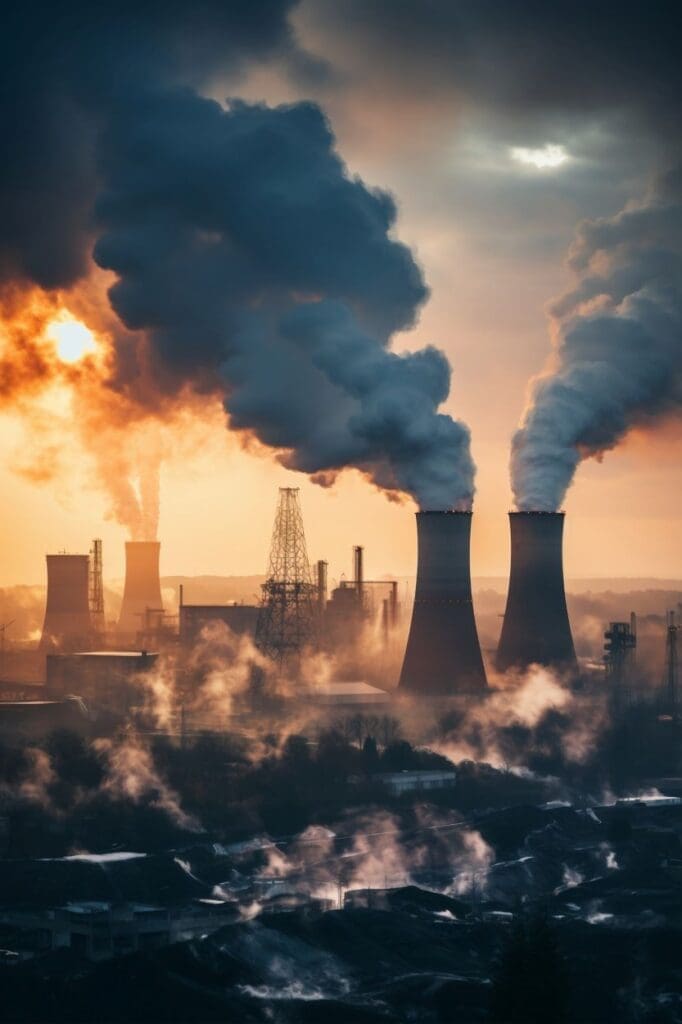In a groundbreaking study, an international consortium of geoscientists, with significant contributions from University of Utah researchers, has unraveled the intricate history of atmospheric carbon dioxide (CO2) levels spanning 66 million years.
Their findings, published in the journal Science, reveal that today’s concentration of CO2 at 420 parts per million (ppm) is higher than it has ever been in the past 14 million years.
Reconstructing ancient atmospheres relies on proxies within the geological record, as direct evidence beyond the last 800,000 years is scarce. Geology professor Gabe Bowen emphasizes the challenges of relying on proxies, which include isotopes in minerals and fossilized leaves, to glean insights into atmospheric chemistry.
The study, known as the Cenozoic CO2 Proxy Integration Project (CenCO2PIP), aims to assess and integrate these proxies to create a comprehensive record of atmospheric CO2 levels.
The CenCO2PIP research team, comprising approximately 90 scientists from 16 countries, endeavors to create a high-fidelity CO2 record dating back 540 million years. With funding from multiple grants and agencies, their mission is to shed light on the CO2 landscape from the dawn of complex life to the present day.
At the onset of the Industrial Revolution, atmospheric CO2 stood at around 280 ppm. Human activities, particularly the combustion of fossil fuels like coal, oil, and gas, have propelled today’s levels to 419 ppm. Looking ahead, projections indicate concentrations climbing to 600 to 1,000 ppm by 2100, depending on future emission rates. The unprecedented spike in CO2 levels raises concerns about its potential impact on climate systems globally.
The current study holds paramount importance for predicting future climates accurately.
William Anderegg, director of the University of Utah’s Wilkes Center for Climate & Policy, emphasizes the significance of having a reliable map of past CO2 levels. Understanding the Earth’s historical CO2 variation helps researchers decipher the key processes and components of the Earth system, crucial for projecting the speed and magnitude of future climate change.


By comparing current CO2 levels to those of the past, the study reveals that the Earth has not experienced such elevated concentrations in the last 14 million years. The swift and substantial alteration of the atmosphere by human activities over the last few generations has resulted in alarming disruptions across the globe, including powerful storms, prolonged droughts, deadly heatwaves, and ocean acidification.
The Cenozoic era provides valuable insights into the relationship between CO2 levels, climate, and the evolution of species. Long-term declines in CO2 during this era likely influenced plant physiology, species competition, and dominance, ultimately impacting mammalian evolution. The study underscores the necessity of understanding past CO2 trends to comprehend the emergence and future prospects of modern species and ecosystems.
The international effort to reconstruct atmospheric CO2 levels over millions of years sheds light on the profound impact of human activities on the Earth’s climate. With today’s CO2 concentration surpassing levels unseen for 14 million years, the study underscores the urgency of addressing climate change and highlights the importance of informed decision-making based on a refined understanding of Earth’s historical climate variations.
Journal Reference:
Bärbel Hönisch, Dana L. Royer, Daniel O. Breecker, Pratigya J. Polissar, Gabriel J. Bowen, Michael J. Henehan, Ying Cui, Margret Steinthorsdottir, Jennifer C. McElwain, Matthew J. Kohn, Ann Pearson, Samuel R. Phelps, Kevin T. Uno, Andy Ridgwell, Eleni Anagnostou, Jacqueline Austermann, Marcus P. S. Badger, Richard S. Barclay, Peter K. Bijl, Thomas B. Chalk, Christopher R. Scotese, Elwyn de la Vega, Robert M. DeConto, Kelsey A. Dyez, Vicki Ferrini, Peter J. Franks, Claudia F. Giulivi, Marcus Gutjahr, Dustin T. Harper, Laura L. Haynes, Matthew Huber, Kathryn E. Snell, Benjamin A. Keisling, Wilfried Konrad, Tim K. Lowenstein, Alberto Malinverno, Maxence Guillermic, Luz María Mejía, Joseph N. Milligan, John J. Morton, Lee Nordt, Ross Whiteford, Anita Roth-Nebelsick, Jeremy K. C. Rugenstein, Morgan F. Schaller, Nathan D. Sheldon, Sindia Sosdian, Elise B. Wilkes, Caitlyn R. Witkowski, Yi Ge Zhang, Lloyd Anderson, David J. Beerling, Clara Bolton, Thure E. Cerling, Jennifer M. Cotton, Jiawei Da, Douglas D. Ekart, Gavin L. Foster, David R. Greenwood, Ethan G. Hyland, Elliot A. Jagniecki, John P. Jasper, Jennifer B. Kowalczyk, Lutz Kunzmann, Wolfram M. Kürschner, Charles E. Lawrence, Caroline H. Lear, Miguel A. Martínez-Botí, Daniel P. Maxbauer, Paolo Montagna, B. David A. Naafs, James W. B. Rae, Markus Raitzsch, Gregory J. Retallack, Simon J. Ring, Osamu Seki, Julio Sepúlveda, Ashish Sinha, Tekie F. Tesfamichael, Aradhna Tripati, Johan van der Burgh, Jimin Yu, James C. Zachos, Laiming Zhang,, ‘Toward a Cenozoic history of atmospheric CO2‘, Science 382, eadi5177 (2023). DOI: 10.1126/science.adi5177
Article Source:
Press Release/Material by University of Utah
Featured image credit: rawpixel.com | Freepik.com




